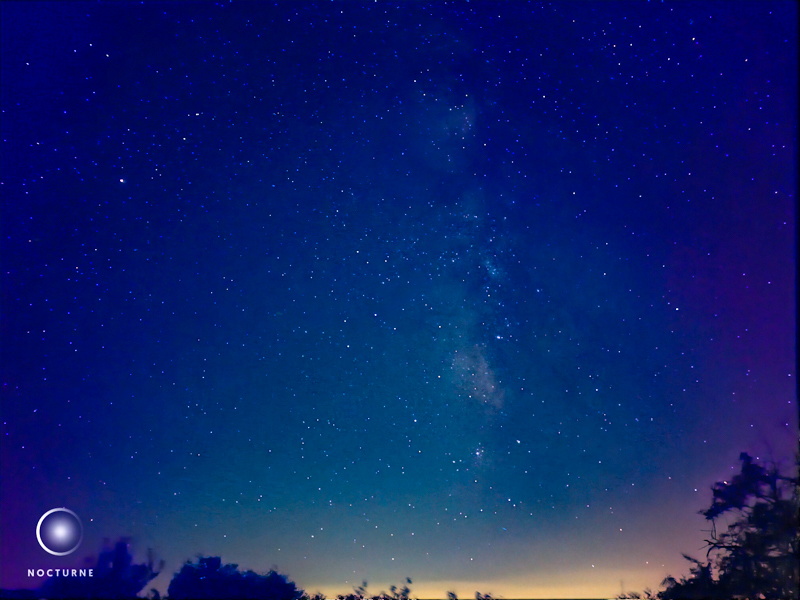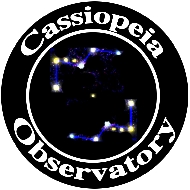Moon-Venus, Saturn Nebula
Posted: 10 September 2021
After sunset on Thursday, 9 September 2021, I took these photos of the crescent Moon and the planet Venus in the western sky.
iPhone (1X lens)

D850 DSLR (f/5.6, 1/10sec, ISO 2500, FL 70mm)

D850 DSLR (f/5.6, 1/6sec, ISO 1600, FL 300mm)

|
Open: Thursday, 9 September 2021, 2056 MST Temperature: 79°F |
Session: 1663 Conditions: Clear, breezy |
Equipment:
12" f/8 LX600 w/StarLock
2" 24mm UWA eyepiece
2" UHC filter
Camera:
iPhone 11 Pro Max
D850 DSLR
2100 MST: LX600 ON, StarLock OFF, High Precision OFF.
Viewed Saturn and four moons, 102X.
Viewed Jupiter, the Great Red Spot, and four moons, 102X.
Mounted the iPhone 11 Pro Max on a tabletop camera tripod using the Levenhuk adapter to test a new night sky astrophotography iOS app, Nocturne (available in the Apple App Store, free). I tried to use the earbuds as a remote shutter release, but unlike other camera apps, Nocturne did not recognize the earbuds. The app first measures the scene brightness (or darkness) and determines how many exposures to take. The app then takes individual photos, registers (aligns) the stars, and stacks the images. This photograph of the Milky Way was a 3 minute exposure on a non-tracking mount. The app did an excellent job of aligning (notice that the trees at the bottom are blurred yet the stars are points). The colors went a little wonky, but otherwise it is a nice photo.

2123 MST: viewed NGC7009 (Saturn Nebula), 102X.
Mounted the D850 DSLR at prime focus + UHC filter, focused on the star Altair, and locked the 12" mirror. Slewed to NGC7009.
2133 MST: StarLock ON.
Began taking framing and exposure test images. Seeing, and hence autoguiding, was not very good. I ended up taking many images, only to get 4 frames that were any good. This is a full-frame image, StarLock autoguided, 15 seconds, ISO 800, show the scale of the Saturn Nebula.

This is a stack of three Starlock autoguided, 10 seconds, ISO 800, images, cropped.

2146 MST: StarLock OFF.
Viewed Jupiter, 102X.
2154 MST: LX600 OFF.
2200 MST: took a sky quality reading.
|
Close: Thursday, 9 September 2021, 2208 MST Temperature: 78°F |
Session Length: 1h 12m Conditions: Clear, breezy, SQM 20.95 |
Comments are welcome using Email. Twitter users can use the button below to tweet this report to their followers. Thanks.
Cassiopeia Observatory Home Page
Copyright ©2021 Michael L. Weasner / mweasner@me.com
URL = http://www.weasner.com/co/Reports/2021/09/10/index.html
